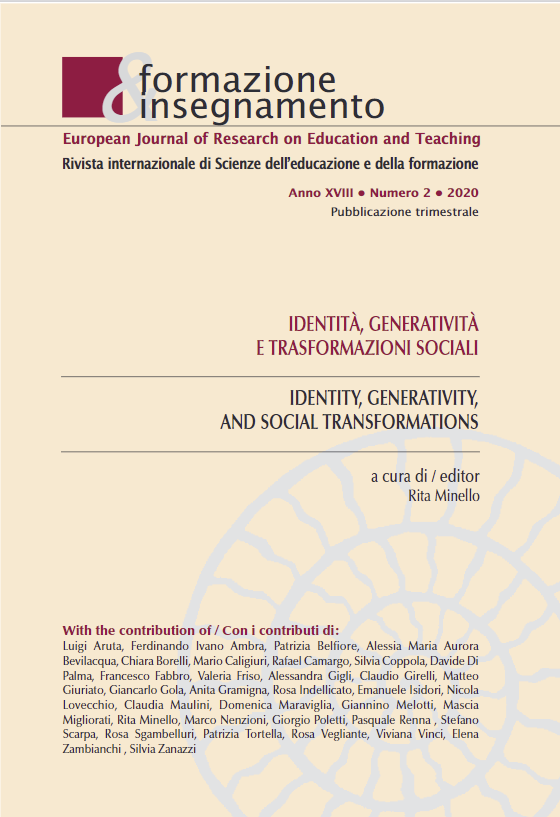Embodied cognition e formazione del sé: verso un approccio enattivo allo studio della relazione educativa
DOI:
https://doi.org/10.7346/-fei-XVIII-02-20_12Resumen
Il lavoro si connota come ricerca teoretica finalizzata alla possibilità di riattribuire alla relazione educativa l’originaria capacità di elevarsi a funzione enattiva dei processi formativi per l’estrinsecazione del sé. La tesi principale riguarda la possibilità che la relazione educativa formi alla coscienza facendo riferimento sostanzialmente al paradigma enattivo nella particolare rivisitazione apportata da Umberto Margiotta con il modello dell’integrale antropologico. Vengono perciò richiamati i principali concetti esplicativi il tema d’interesse, problematizzando il processo intersoggettivo della relazione
educativa in quanto propulsore dei percorsi di maturazione e di formazione dell’uomo, individuando nella riflessività il dispositivo principe capace di produrre enazione.
Descargas
Publicado
Cómo citar
Número
Sección
Licencia
Derechos de autor 2020 Pensa MultiMedia

Esta obra está bajo una licencia internacional Creative Commons Atribución 4.0.
Formazione & insegnamento se distribuye bajo la licencia Atribución 4.0 Internacional (CC BY 4.0).
Para más detalles, por favor refiérase a nuestra Política de Repositorio y Archivo, así como a nuestros Términos de Derechos de Autor y Licencia.





